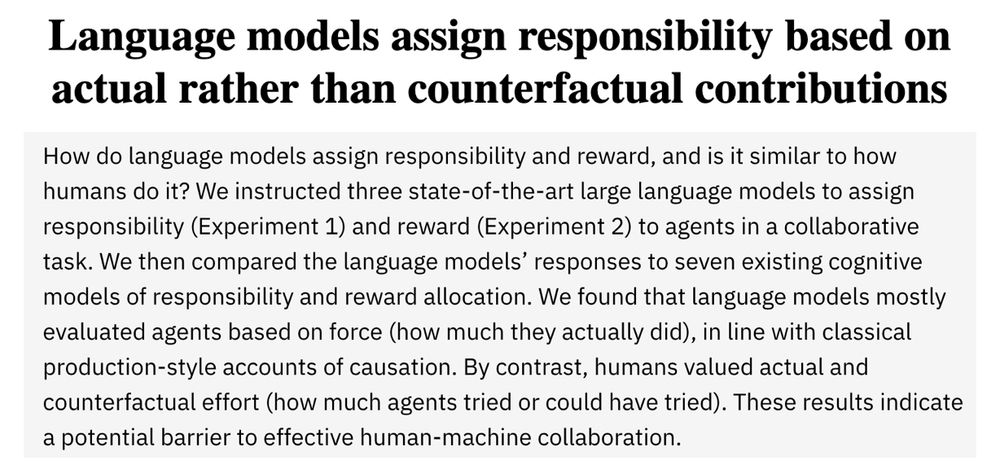

LLMs are increasingly involved in human collaborations. How do LLMs assign responsibility and reward to collaborators? Is it similar to how humans do it? 🤖🧑
📃 gershmanlab.com/pubs/XiangBi... (1/4)

LLMs are increasingly involved in human collaborations. How do LLMs assign responsibility and reward to collaborators? Is it similar to how humans do it? 🤖🧑
📃 gershmanlab.com/pubs/XiangBi... (1/4)



